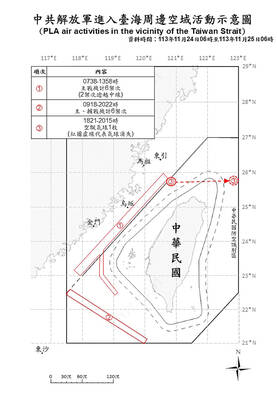The Democratic Progressive Party (DPP) needs more time to complete a more in-depth understanding of China as the party has yet to decide for any explicit policy direction for the country, exiled Chinese dissident Wang Dan (王丹) said yesterday during an interview with the Central News Agency (CNA).
“DPP Chairman Su Tseng-chang (蘇貞昌) and I had an exchange of opinions on various issues concerning Taiwan’s China policy and we are on the same page, particularly about how Taiwan’s democracy could impact and facilitate China’s democratization,” Wang said.
However, no detailed discussion on regulations concerning Chinese students — including whether to include Chinese students in the National Health Insurance (NHI) plan or relax the “three restrictions and six noes” — had yet been made between him and Su, Wang added.
The three restrictions limit enrolment to Chinese students from “schools of high academic standing,” places a cap on how many Chinese are allowed to study in Taiwan and does not recognize medical diplomas obtained in China.
The six noes refer to no preferential grading on entrance exams, no scholarships, no effect on Taiwanese student enrolment openings, no part-time jobs in Taiwan, no participation in licensing examinations and no extended stay in Taiwan following graduation.
Praising the DPP’s China engagement as “promoting cross-strait democratic development,” Wang said the Chinese Nationalist Party (KMT) should follow suit.
Wang made the remarks in response to a CNA interview with President Ma Ying-jeou (馬英九) on Monday, during which Ma described the DPP’s China policy as “lacking courage.”
Turning to his planned publication, Wang Dan’s Book of Memories — From the 6/4 Incident to Exile (王丹回憶錄-從六四到流亡) Wang, a student leader in the 1989 Tiananmen Square democracy protest, said no one had yet provided the public with a detailed and thorough account of the massacre which brought the protests to a bloody end.
“This memoir is a depiction of a man, a country and an era which hopefully provides a vivid reflection on the past 30 years of China through historical events,” Wang said.
“If I don’t write them down now, some memories [of the incident] could become blurred over time,” Wang added.
The publication tells the personal stories of Wang’s childhood and teenage years, as well as the 1989 Massacre — including detailed records of the days between the death of former Chinese Communist Party general secretary Hu Yaobang (胡耀邦) on April 15, 1989, and the brutal crackdown of protestors by the People’s Liberation Army on June 4 in the same year.

A decision to describe a Chinese Ministry of Foreign Affairs statement on Singapore’s Taiwan policy as “erroneous” was made because the city-state has its own “one China policy” and has not followed Beijing’s “one China principle,” Deputy Minister of Foreign Affairs Tien Chung-kwang (田中光) said yesterday. It has been a longstanding practice for the People’s Republic of China (PRC) to speak on other countries’ behalf concerning Taiwan, Tien said. The latest example was a statement issued by the PRC after a meeting between Singaporean Prime Minister Lawrence Wong (黃循財) and Chinese President Xi Jinping (習近平) on the sidelines of the APEC summit

Taiwan’s passport ranked 34th in the world, with access to 141 visa-free destinations, according to the latest update to the Henley Passport Index released today. The index put together by Henley & Partners ranks 199 passports globally based on the number of destinations holders can access without a visa out of 227, and is updated monthly. The 141 visa-free destinations for Taiwanese passport holders are a slight decrease from last year, when holders had access to 145 destinations. Botswana and Columbia are among the countries that have recently ended visa-free status for Taiwanese after “bowing to pressure from the Chinese government,” the Ministry

HEALTHCARE: Following a 2022 Constitutional Court ruling, Taiwanese traveling overseas for six months would no longer be able to suspend their insurance Measures allowing people to suspend National Health Insurance (NHI) services if they plan to leave the country for six months would be abolished starting Dec. 23, NHIA Director-General Shih Chung-liang (石崇良) said yesterday. The decision followed the Constitutional Court’s ruling in 2022 that the regulation was unconstitutional and that it would invalidate the regulation automatically unless the NHIA amended it to conform with the Constitution. The agency would amend the regulations to remove the articles and sections that allow the suspension of NHI services, and also introduce provisional clauses for those who suspended their NHI services before Dec. 23, Shih said. According to

‘GRAY ZONE’ TACTICS: China continues to build up its military capacity while regularly deploying jets and warships around Taiwan, with the latest balloon spotted on Sunday The US is drawing up contingency plans for military deployments in Japan and the Philippines in case of a Taiwan emergency, Japan’s Kyodo news agency reported. They would be incorporated in a first joint operation plan to be formulated in December, Kyodo reported late on Sunday, citing sources familiar with Japan-US relations. A US Marine Corps regiment that possesses High Mobility Artillery Rocket Systems — a light multiple rocket launcher — would be deployed along the Nansei Island chain stretching from Kyushu to Yonaguni near Taiwan, Kyodo said. According to US military guidelines for dispatching marines in small formations to several locations,